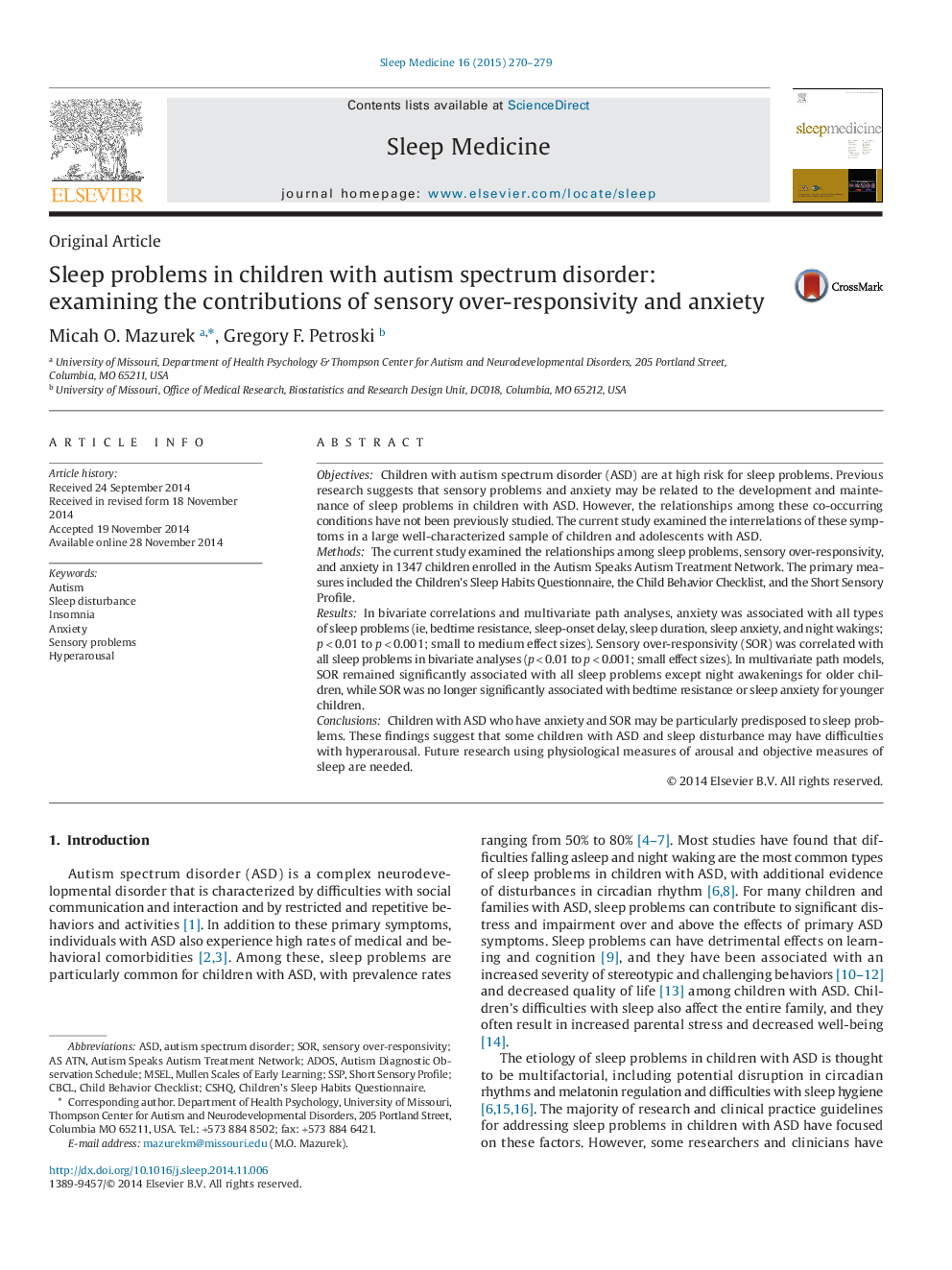| Article ID | Journal | Published Year | Pages | File Type |
|---|---|---|---|---|
| 6060471 | Sleep Medicine | 2015 | 10 Pages |
â¢The study included 1347 children (ages 2-18 years) with autism spectrum disorder (ASD).â¢The relationships among sleep, sensory problems, and anxiety were examined.â¢Anxiety was associated with all types of sleep problems.â¢Sensory problems were associated with specific sleep problems in path analyses.â¢Children with ASD and sleep disturbance may have difficulties with hyperarousal.
ObjectivesChildren with autism spectrum disorder (ASD) are at high risk for sleep problems. Previous research suggests that sensory problems and anxiety may be related to the development and maintenance of sleep problems in children with ASD. However, the relationships among these co-occurring conditions have not been previously studied. The current study examined the interrelations of these symptoms in a large well-characterized sample of children and adolescents with ASD.MethodsThe current study examined the relationships among sleep problems, sensory over-responsivity, and anxiety in 1347 children enrolled in the Autism Speaks Autism Treatment Network. The primary measures included the Children's Sleep Habits Questionnaire, the Child Behavior Checklist, and the Short Sensory Profile.ResultsIn bivariate correlations and multivariate path analyses, anxiety was associated with all types of sleep problems (ie, bedtime resistance, sleep-onset delay, sleep duration, sleep anxiety, and night wakings; pâ<0.01 to pâ<0.001; small to medium effect sizes). Sensory over-responsivity (SOR) was correlated with all sleep problems in bivariate analyses (pâ<0.01 to pâ<0.001; small effect sizes). In multivariate path models, SOR remained significantly associated with all sleep problems except night awakenings for older children, while SOR was no longer significantly associated with bedtime resistance or sleep anxiety for younger children.ConclusionsChildren with ASD who have anxiety and SOR may be particularly predisposed to sleep problems. These findings suggest that some children with ASD and sleep disturbance may have difficulties with hyperarousal. Future research using physiological measures of arousal and objective measures of sleep are needed.
